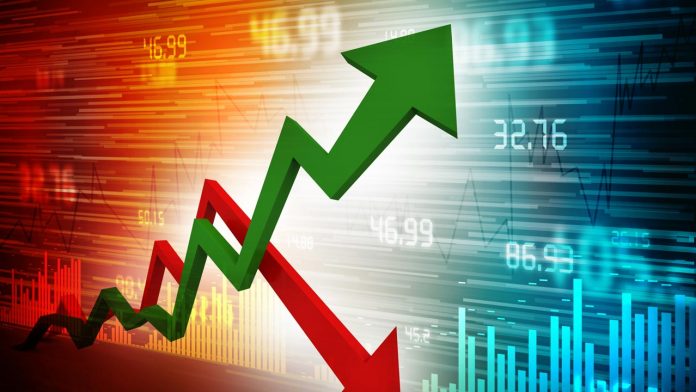KARACHI: The country’s Consumer Price Index (CPI) inflation surged by 5.8 per cent on a year-on-year basis (YoY) in July 2018 as compared to an increase of 5.2 per cent in the previous month and 2.9 per cent in July 2017.
“CPI inflation is also expected to average around 7 per cent in 2018-20 on the back of currency devaluation and rising oil prices,” a report from Topline Securities stated.
On month-on-month (MoM) basis, CPI increased by 0.9 per cent in July 2018 as compared to an increase of 0.6 per cent in the previous month and decrease of 0.3 per cent in July 2017.
Core inflation measured by non-food non-energy CPI (Core NFNE) surged by 7.6 per cent on (YoY) basis in July 2018 as compared to an increase of 7.1 per cent in the previous month and 5.6 per cent in July 2017.
On (MoM) basis, it increased by 1.2 per cent in July 2018 as compared to increase of 0.3 per cent in the previous month, and an increase of 0.7 per cent in the corresponding month of last year July 2017.
Core inflation, measured by 20 per cent weighted trimmed mean CPI (Core Trimmed) increased by 5.9 per cent on (YoY) basis in July 2018 as compared to 5.4 per cent in the previous month and by 4.0 per cent in July 2017.
On (MoM) basis, it increased by 0.9 per cent in July 2018 as compared to an increase of 0.2 per cent in the previous month and an increase of 0.4 per cent in the corresponding month of last year July 2017.
SPI inflation on YoY increased by 3.6 per cent in July 2018 as compared to an increase of 1.9 per cent a month earlier and a decrease of 0.4 per cent in July 2017.
On a MoM basis, it increased by 1.2 per cent in July 2018 as compared to an increase of 1.8 per cent a month earlier and a decrease of 0.5 per cent in July 2017.
WPI inflation on YoY basis increased by 10.5 per cent in July 2018 as compared to an increase of 7.6 per cent a month earlier and an increase of 0.7 per cent in July 2017. WPI inflation on MoM basis increased by 2.4 per cent in July 2018 as compared to an increase of 1.5 per cent a month earlier and a decrease of 0.2 per cent in the corresponding month of last year i.e. July 2017.
In the last 2-years, State Bank of Pakistan (SBP) has maintained positive real interest rates of 1.8 per cent. SBP had also adopted a similar tightening approach in 2008 when interest rates were raised sharply by a cumulative 5 per cent when Current Account Deficit (CAD) climbed to $10 billion (8 per cent of GDP) & inflation peaked at 25%.
According to SBP Monetary Policy, the discount rates have been raised by 150bps since the start of 2018 (biggest spike in a year since CY08), taking note of the deteriorating macroeconomic situation. Twin-deficits have continued to widen with the fiscal deficit likely to arrive at 7% of the GDP for 2017-18, along with a ballooning current account deficit which crossed $18 billion for 2017-18.
The SBP governor Tariq Bajwa said last week that the deficit has grown to an “unsustainable level” due to soaring aggregate demand in the economy.
The growing deficit has pushed the country near a default-like situation. The country’s foreign currency reserves have dropped to an alarming level of fewer than two months of import cover. They stood at $9.010 billion on July 26, a four-year low.




